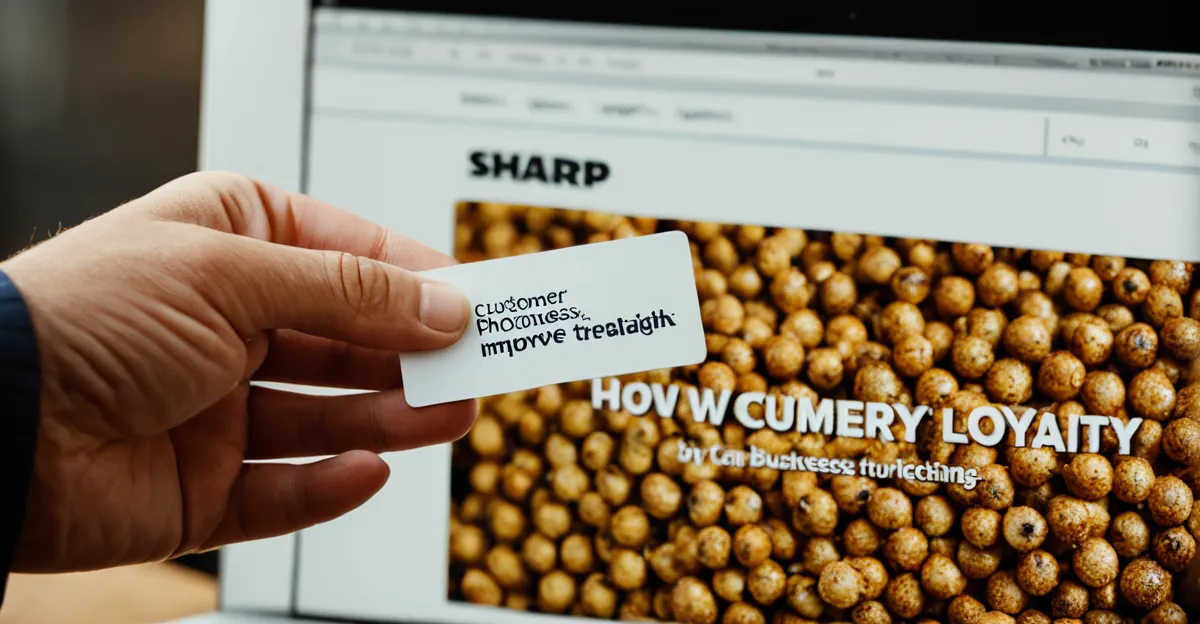Key marketing strategies to enhance customer loyalty in the UK
Effective customer loyalty strategies UK focus heavily on data-driven loyalty programs tailored specifically for local preferences. Brands collect and analyse customer insights through CRM tools to create personalised rewards that resonate with UK consumers. For example, using purchase history data allows bespoke offers, which boost engagement and encourage repeat business.
Marketing for retention in the UK demands consistent, personalised communication. Leveraging CRM platforms enables businesses to segment their audience and send targeted messages. This tailored approach not only increases relevance but also strengthens emotional connections, a crucial aspect of UK loyalty tactics.
Also read : What are the benefits of sustainable marketing practices for UK businesses?
Moreover, sustained customer engagement through multi-channel campaigns—combining email, social media, SMS, and in-app messaging—keeps brands top-of-mind. This omnichannel presence ensures accessibility and convenience that UK consumers appreciate. By integrating these channels, companies reinforce brand loyalty and enhance customer lifetime value.
In sum, combining data-driven loyalty programs, personalised communication, and multi-platform campaigns constitutes a powerful framework for mastering customer loyalty strategies UK businesses need today.
In parallel : How can UK companies improve their customer engagement through content?
Effective loyalty programs for UK businesses
Loyalty programs in the UK often succeed by blending points-based and tiered loyalty schemes, catering to varied customer preferences. Customers enjoy accumulating points for each purchase, which can then be exchanged for rewards or exclusive benefits. Tiered structures encourage ongoing engagement by unlocking higher-value rewards as shoppers spend more. These approaches serve as strong retention incentives, keeping customers motivated to return.
UK brands such as Boots and Costa Coffee have implemented loyalty schemes that combine these elements expertly. Boots uses a points system where customers earn for each pound spent, redeemable against future purchases. Costa Coffee’s tiered scheme offers goodies at different stages, appealing to a broad audience.
Integration with digital wallets and branded mobile apps enhances convenience and engagement. Many UK businesses now allow customers to collect and redeem points seamlessly via their smartphones. This integration not only simplifies the experience but also boosts participation by making rewards instantly accessible.
In today’s digital landscape, loyalty programs that combine structured incentives with technology offer UK businesses powerful tools to build lasting customer relationships.
## Personalised and localised customer communication
Effective personalised marketing UK hinges on delivering messages that resonate deeply with individual customers. By harnessing robust customer relationship management UK systems, businesses can analyse the rich customer data now available. This data reveals preferences, purchase history, and behaviour patterns that inform highly relevant offers and tailored content.
Adjusting language and offers to reflect UK regional and cultural nuances significantly boosts engagement. For instance, marketing campaigns in Scotland may use distinct phrases or highlight local events to foster connection. This targeted communication ensures the message feels authentic and relatable, rather than generic.
Moreover, improving email and SMS strategies through advanced automation and segmentation refines timing and content relevance. Segmenting audiences based on factors like location, demographics, and purchase behaviour makes automated campaigns more precise. These tailored messages are more likely to prompt action and build long-term loyalty.
Utilising dynamic content insertion and behavioural triggers further enhances personalised marketing UK, creating a seamless experience that adapts to each customer’s journey. This approach capitalises on customer relationship management UK tools to deliver truly meaningful communications.
Engaging customers through digital and community initiatives
Building strong customer engagement UK hinges on creative social media marketing UK and thoughtful community building. Designing engaging social media and content marketing campaigns tailored to UK audiences ignites interest and fosters loyalty. For example, leveraging storytelling formats and interactive posts can make campaigns more relatable and shareable.
Encouraging feedback is crucial for authentic engagement. Inviting customers to share opinions via polls, reviews, and direct messages builds trust and transforms followers into passionate brand advocates within their communities. Positive word of mouth nurtured in local settings can dramatically boost visibility.
Hosting events and collaborations amplifies these efforts. Partnering with UK-based influencers or local organizations creates meaningful touchpoints that blend online presence with real-world experiences. These initiatives not only deepen connections but also expand the reach to new audience segments, making customer engagement in the UK more dynamic and community-focused.
By weaving together social media marketing UK strategies with genuine community building and digital interactivity, brands establish lasting bonds that resonate beyond typical advertising.
Navigating UK-specific regulations and cultural expectations
Understanding UK marketing regulations is crucial for businesses aiming to build lasting relationships with customers. Compliance with the General Data Protection Regulation (GDPR) ensures that personal data is handled responsibly, minimizing legal risks while enhancing consumer confidence. For example, loyalty programs must clearly explain how customer information is collected and used, ensuring transparency.
Beyond legal adherence, cultivating customer trust UK depends on ethical marketing practices. Transparent communication about data usage reassures customers, fostering loyalty. Campaigns should avoid aggressive tactics that may alienate audiences sensitive to privacy concerns or over-marketing.
Cultural nuances also play a significant role. UK consumers appreciate direct but polite messaging that respects their values. Designing campaigns mindful of diverse cultural backgrounds ensures relevance and increases engagement. For instance, acknowledging national holidays or local events in marketing materials can create positive emotional connections.
In summary, balancing rigorous compliance with GDPR, transparent data practices, and culturally sensitive communication forms the foundation of successful marketing strategies in the UK. This approach not only satisfies regulatory demands but also builds enduring customer trust UK through ethical and respectful engagement.
Measuring success and optimising loyalty marketing efforts
When evaluating customer loyalty analytics UK, tracking key loyalty program metrics is essential for understanding campaign effectiveness. Metrics such as repeat purchase rates, customer lifetime value, and redemption rates provide clear indicators of success. Coupling these with marketing ROI UK measurements ensures a comprehensive view of how investments translate into revenue.
To improve performance, gathering customer insights through surveys or feedback channels enables brands to fine-tune offers and communications. This iterative approach helps in identifying pain points and enhancing customer engagement. For example, if redemption rates are low, adjusting campaign messaging or incentives can boost participation.
In fact, UK market analysis shows that loyalty schemes with data-driven optimisation consistently outperform those that rely on intuition alone. Brands that focus on continuous performance improvement often see increased retention and higher long-term profitability.
In summary, using robust customer loyalty analytics UK combined with actionable insights allows marketers to maximise the impact of their efforts, ensuring a better return on investment and fostering stronger customer relationships.



